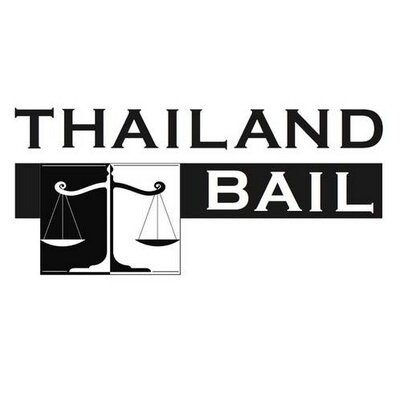Best Arrests & Searches Lawyers in Thailand
Share your needs with us, get contacted by law firms.
Free. Takes 2 min.
Or refine your search by selecting a city:
List of the best lawyers in Thailand
Thailand Arrests & Searches Legal Articles
Browse our 1 legal article about Arrests & Searches in Thailand written by expert lawyers.
- What to do After Being Arrested in Thailand
- Getting arrested in Thailand is a frightening and stressful experience, but if you keep calm and know what to do, you can make things much easier for yourself. In this article, we will go through the key steps you should take after being arrested in Thailand, and help you deal... Read more →
About Arrests & Searches Law in Thailand
In Thailand, the laws governing arrests and searches are primarily derived from the Thai Constitution, the Criminal Procedure Code, and various police regulations. These laws define the powers of law enforcement officials, the rights of individuals, and the procedures that must be followed during arrests and searches. Generally, for an arrest or a search to be lawful, it must be conducted with a warrant issued by the court. However, there are exceptions where a warrant is not required, such as when a crime is being committed in the presence of law enforcement officials or in emergency situations.
Why You May Need a Lawyer
Legal help may become necessary in a number of situations related to arrests and searches in Thailand. For example, if you have been improperly detained or your property has been searched without due process, a lawyer can protect your rights and ensure that legal procedures are followed. Additionally, individuals involved in criminal proceedings might need expert advice to navigate the complexities of Thai law, defend against charges, or seek compensation for unlawful searches or arrests. In essence, legal counsel can provide critical assistance in understanding your rights and ensuring they are upheld.
Local Laws Overview
The local laws in Thailand relevant to arrests and searches include the Criminal Procedure Code, which details the requirements for lawful arrests and searches. Police generally need a warrant to make an arrest or search a property, although there are specific cases where immediate action is justified without one. Furthermore, the suspect has fundamental rights during the arrest process, like being informed of the charges and having access to legal representation. Thai law also provides measures to challenge unlawful arrests or searches, including remedies through the court system.
Frequently Asked Questions
What are my rights if I am arrested in Thailand?
If you are arrested in Thailand, you have the right to be informed of the charges against you, to contact a lawyer, and to have someone informed of your arrest. You should be treated humanely and can challenge the legality of your detention in court.
Can the police search my home without a warrant?
Generally, the police require a search warrant to search your home. However, they can conduct a warrantless search if there are urgent circumstances, such as preventing harm or if evidence is likely to be destroyed.
What should I do if I believe my rights have been violated during an arrest or search?
If you believe your rights have been violated, you should contact a lawyer immediately. You may have grounds to file a complaint or seek redress through the legal system.
How long can I be detained without being charged?
Under Thai law, you can be detained without charge for up to 48 hours. After that, the police must either release you or seek a court order to extend your detention.
Do I need to speak Thai to engage with the legal process?
While knowing Thai can help, it is not a requirement. You can request an interpreter during legal proceedings or consultations with your lawyer.
Can I refuse to accompany the police if I am approached?
You can refuse if there is no legal basis for the police's request. However, if the officers have a warrant or evidence of your involvement in a crime, compliance is advised, and you should seek legal help.
What happens during a lawful arrest?
During a lawful arrest, the police will inform you of the charges, your rights, and you will be taken into custody. You should be allowed to contact legal counsel and have access to the basic necessities.
Can evidence obtained during an illegal search be used against me?
In Thailand, evidence obtained through illegal searches can be challenged in court. A judge may rule that such evidence is inadmissible.
What should I do if I am stopped by the police while driving?
Remain calm and comply with the officers' instructions. Provide documentation if requested and ask politely for the reason if you are unsure about the stop. Remember, you have the right to legal representation.
Are there specific rights for foreigners regarding arrests and searches?
Foreigners have the same rights as Thai citizens regarding arrests and searches. However, you should seek legal counsel familiar with cases involving foreigners to navigate any additional complexities.
Additional Resources
For further assistance, consider reaching out to the following resources: - The Thai Bar Association: Offers legal support and information. - Local embassies or consulates: Can provide guidance and assistance to their citizens. - Human Rights organizations in Thailand: May offer support in cases of rights violations. - Legal forums and community groups: Often provide valuable peer advice and support.
Next Steps
If you find yourself in need of legal assistance in relation to arrests and searches in Thailand, the first step is to contact a qualified lawyer experienced in this field. Make sure to document all interactions with law enforcement and gather any evidence that may support your case. You may also consider consulting your embassy or consulate for additional support, especially if you are a foreign national. Remember, it is crucial to act promptly to protect your rights and seek appropriate legal remedies if necessary.
Lawzana helps you find the best lawyers and law firms in Thailand through a curated and pre-screened list of qualified legal professionals. Our platform offers rankings and detailed profiles of attorneys and law firms, allowing you to compare based on practice areas, including Arrests & Searches, experience, and client feedback.
Each profile includes a description of the firm's areas of practice, client reviews, team members and partners, year of establishment, spoken languages, office locations, contact information, social media presence, and any published articles or resources. Most firms on our platform speak English and are experienced in both local and international legal matters.
Get a quote from top-rated law firms in Thailand — quickly, securely, and without unnecessary hassle.
Disclaimer:
The information provided on this page is for general informational purposes only and does not constitute legal advice. While we strive to ensure the accuracy and relevance of the content, legal information may change over time, and interpretations of the law can vary. You should always consult with a qualified legal professional for advice specific to your situation.
We disclaim all liability for actions taken or not taken based on the content of this page. If you believe any information is incorrect or outdated, please contact us, and we will review and update it where appropriate.
Browse arrests & searches law firms by city in Thailand
Refine your search by selecting a city.

















